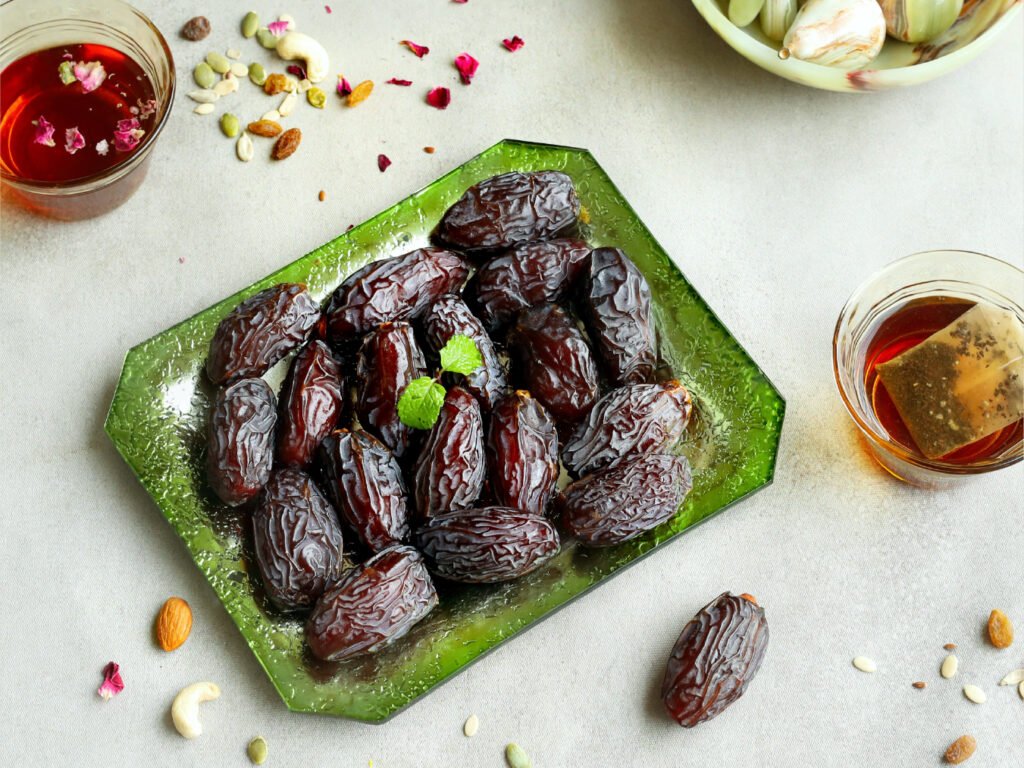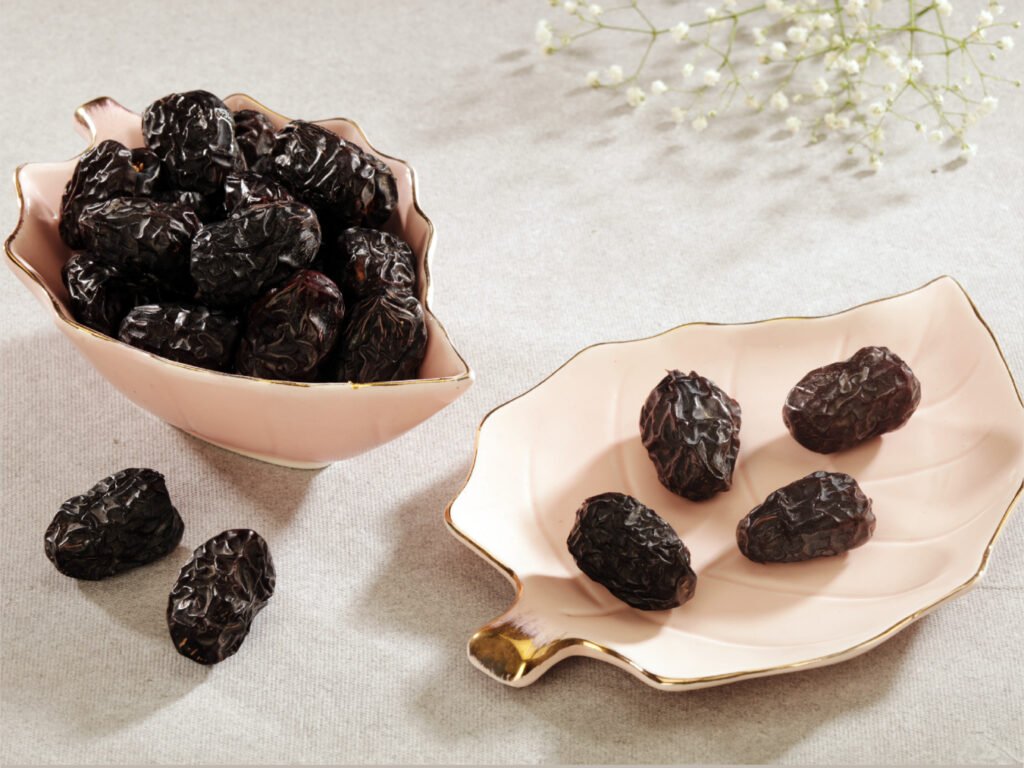As the holy month of Ramadan approaches, Muslims around the world eagerly anticipate the arrival of dates, a cherished tradition that holds deep spiritual significance. Not only do dates serve as a staple for breaking fasts, but they also symbolize blessings, nourishment, and divine favor. Among the diverse array of dates available, Ajwa, Medjoul, Mabroom, Sagai, and Frozen Rotana Rutab stand out as particularly esteemed varieties, each offering its own unique flavor and nutritional benefits. In this blog, we explore the origins, characteristics, and virtues of these exquisite date varieties, along with frequently asked questions to enhance your understanding and appreciation of these sacred fruits during the holy month of Ramadan.
Ajwa Dates: The Prophet’s Favorite

Ajwa dates hold a special place in Islamic tradition, as they are believed to have been the favorite dates of Prophet Muhammad (peace be upon him). Grown primarily in the city of Medina in Saudi Arabia, Ajwa dates are revered for their rich, caramel-like flavor and soft, chewy texture. They are also prized for their numerous health benefits, including their ability to strengthen the immune system, aid in digestion, and provide a natural source of energy.
Medjoul Dates: The King of Dates
Often referred to as the “king of dates,” Medjoul dates are renowned for their large size, succulent texture, and sweet, caramel-like taste. Originating from Morocco, Palestine, and Jordan, these premium dates are prized for their rich flavor profile and luxurious mouthfeel. Medjoul dates are not only delicious but also packed with essential nutrients, including vitamins, minerals, and fiber, making them an ideal choice for nourishing the body and replenishing energy levels during Ramadan.
Mabroom Dates: Nature’s Sweet Treasure
Mabroom dates are celebrated for their distinctively sweet flavor, tender texture, and caramel undertones. Native to the Arabian Peninsula and North Africa, these elongated dates are prized for their exceptional taste and nutritional value. Mabroom dates are a rich source of antioxidants, vitamins, and minerals, making them a nourishing and revitalizing choice for breaking fasts and replenishing nutrients during Ramadan.
Sagai Dates: A Taste of Tradition

Sagai dates are revered for their firm texture, mild sweetness, and nutty flavor profile. Grown in the regions of Saudi Arabia and Egypt, these dates are characterized by their unique elongated shape and golden-brown color. Sagai dates are prized for their versatility and culinary appeal, making them a popular choice for both sweet and savory dishes during Ramadan.
Frozen Rotana Rutab Dates: A Refreshing Twist
Frozen Rotana Rutab dates offer a refreshing twist on traditional date varieties, with their soft, juicy texture and vibrant flavor. Harvested at the peak of ripeness and flash-frozen to preserve their freshness, these dates are a delicious and convenient option for enjoying the natural sweetness of dates during Ramadan. Whether enjoyed on their own or used as a topping for desserts and smoothies, Frozen Rotana Rutab dates provide a delightful burst of flavor and hydration during the fasting hours.
In conclusion, as we prepare to embark on the blessed journey of Ramadan, let us embrace the sacred tradition of breaking fasts with dates, savoring the divine delight of Ajwa, Medjoul, Mabroom, Sagai, and Frozen Rotana Rutab dates. May these exquisite fruits nourish our bodies, uplift our spirits, and deepen our connection to the timeless traditions of Islam during this holiest of months. Ramadan Mubarak!
Are dates necessary for breaking the fast during Ramadan?
While dates are not mandatory for breaking the fast, they hold special significance in Islamic tradition and are highly recommended for their nutritional benefits and symbolic importance.
What is the best time to consume dates during Ramadan?
Dates are traditionally consumed at the time of Iftar, the evening meal to break the fast, as they provide a quick source of energy and help replenish nutrients after a day of fasting.
Are there any specific etiquettes for eating dates during Ramadan?
It is recommended to begin the Iftar meal by eating an odd number of dates, followed by water or milk, as this is in accordance with the Sunnah (traditions) of Prophet Muhammad (peace be upon him).
Can dates be used in cooking and baking during Ramadan?
Yes, dates are a versatile ingredient that can be used in a variety of sweet and savory dishes, including desserts, smoothies, salads, and main courses, adding natural sweetness and depth of flavor to recipes.
How should dates be stored to maintain freshness?
Dates should be stored in a cool, dry place away from direct sunlight. They can also be refrigerated or frozen to extend their shelf life and preserve their freshness.


